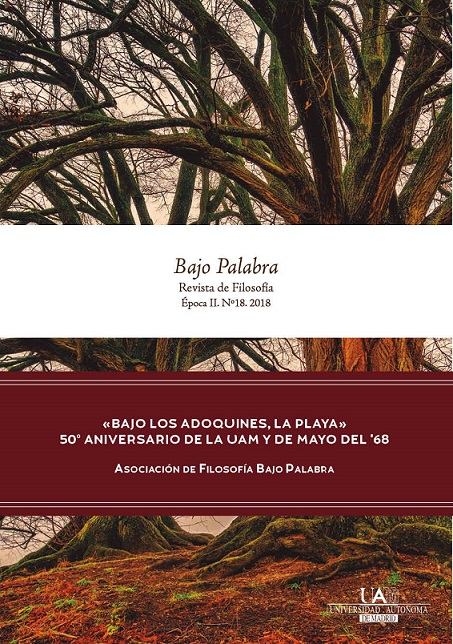Volney before the ruins of Palmyra: what happens and does not happen with time
Abstract
Abstract
This article shows how the impact of the contemplation of the ruins of Palmyra leads Volney to project the exhumation of the meaning of ruins in general. The ruins then become living beings full of teachings. These include, first, those relating to equality (and freedom and justice); and also, the divinity of its author, that is, man as the unique subject of history, the romantic exaltation of beauty and a weak philosophy of history that records the terrible power of evil over time and that mitigates finally with an allusion to progress and its form of future manifestation: the liberal State, which will no longer cease with time. Our discussion explores the profound contradictions of his discourse: themoralization of his vision of the ruins, which significantly distorts its meaning; the excuse for a colonial policy, which derives from its protection; the ambiguous description as barbarians of those who destroy them, applicable equally to fanatics and enlightened; the naive moralistic vision of the role of evil in history or the contrast between the end of history, embodied in the universal State of Law for which France will act as a guide, and its incisive criticism of real Europe and France.
Keywords: Volney, ruins, rule of law, evil, human nature, natural law, France.
Downloads
References
Volney: Voyage en Egypte et en Syrie, Paris, Mouton, 1959.
_____ Les ruines, ou Méditations dur les révolutions des empires, Paris, Hachette, 1883.
_____ Considérations sur la Guerre actuelle des Turcs, Londres, 1788.
_____ Catéchisme du Citoyen français / La loi naturelle ou principes physiques de la morale, 1793.
Gilbert Chinard: Volney et L’Amerique. Baltimore, Johns Hopkins Press, 1923.
Charles A. de Saint-Beuve: “Causeries du lundi”. http://gallica.bnf.fr/ark:/12148/bpt6k37436c
Jean Gaulmier: Un Grand témoin de la Révolution et de l'Empire: Volney, Hachette, 1959.
____ Introduction (al “Voyage en Égypte et en Syrie”). Paris, Mouton, 1959.
____ L’idéologue Volney, 1757-1820: contribution à l’histoire de l’orientalisme en France. Genève /
Paris, Slatkine, 1984.
Gerhard Katschnig: Die Konstruktion von Zukunft im Zeitalter der Aufklärung. Universalgeschichte und Utopie bei Constantin-François Volney. Saarbrücken, Südwestdeutscher Verlag für Hochschulschriften, 2014.
Sophie Lacroix: Volney et le theme des ruines. Révue de métaphysique et de morale, 53, 2007, pp. 89-102.
Daniel Lançon: L’Idéologue Volney devant l’altérité des langues du Proche-Orient : utopies et apories (en Yves Citton et Lise Dumasy, “Le moment idéologique. Littérature et sciences de l’homme”). Lyon, ENS Éditions, 2013.
Jean Sibenaler: Il se faisait appeler Volney: Approche biographique de Constantin-Francois Chassebeuf, 1757-1820. Maulevrier, Editions Hérault, 1992.
